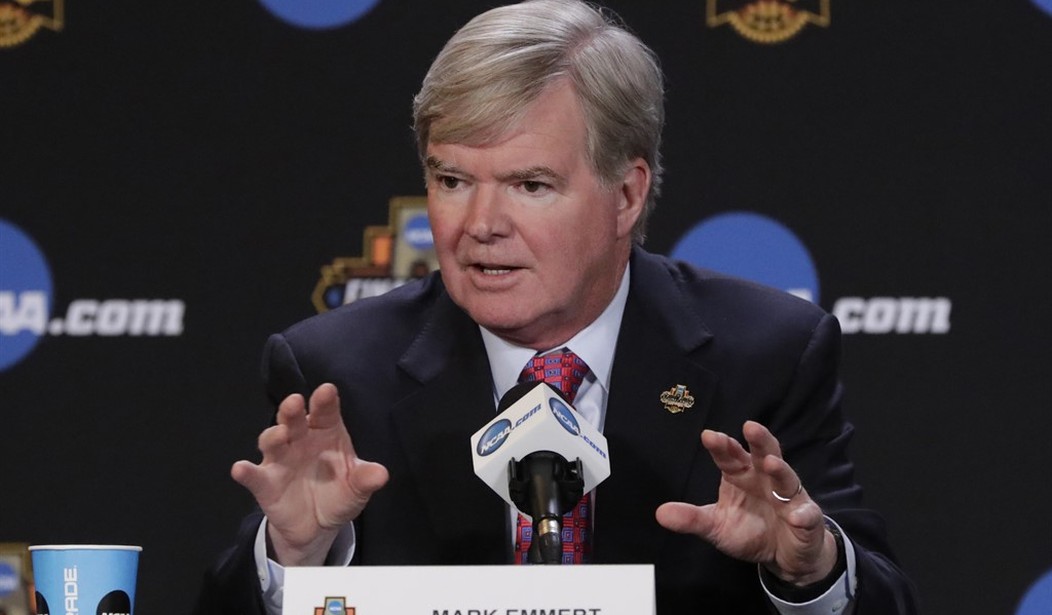Will North Carolina’s deal to roll back their controversial bathroom-access law pay off at the sports turnstiles? After passing HB2 in 2015, the NCAA and other sports and entertainment entities boycotted the Tarheel State to pressure legislators into a reversal. The compromise passed yesterday intended to encourage the NCAA to reverse its position by a noon deadline yesterday on future venue awards for its championship series. Its president, however, elected to take a time-out on those decisions to review the tape:
NCAA president Mark Emmert said that, in light of North Carolina’s decision to repeal its controversial bathroom bill, the organization’s board of directors will announce next week whether it will allow the return of NCAA championship games to the state.
On Thursday, the North Carolina House of Representatives voted to repeal the controversial House Bill 2 law, which said that transgender people would have to use the bathrooms that correspond to the sex on their birth certificates. Gov. Roy Cooper later signed the bill. …
Emmert said that, with committees needing to make decisions soon to meet bidding obligations, the board will meet in the next few days to debate the merits of the new law.
“The board had four problems with that bill, they’ve removed some of those but not all of them,” Emmert said. “They’ve removed two or three, but is that enough?”
Both Republicans and Democrats assumed it would be enough. The compromise reached yesterday had the usual effect of not entirely pleasing anyone, but it did perform the explicit task of repealing the specific bathroom access policy that prompted the boycotts. At the same time, it prevents local authorities from imposing mandates on businesses regarding bathroom access but does nothing to prevent businesses from adopting more progressive policies if they so desire. Nor does it prevent the same progressive forces from applying the same kind of commercial pressure on those businesses to persuade businesses to make that change, although the prevailing opinion among consumers — rather than activists — appears to prefer the status quo ante.
On the other hand, the NCAA may have trouble with the part of the compromise that deals most specifically with the venues it will have to use. The new law retains jurisdiction on bathroom-access policy with the state legislature on all publicly owned facilities — explicitly including campuses of the University of North Carolina and state colleges. With that jurisdiction asserted, the statute forbids any change in access policy from the traditional definitions. That could make it difficult for the NCAA to retreat from their boycott, even though they didn’t raise that issue when using other facilities before the passage of HB2.
The changes did satisfy another college-sports organization. ACC commissioner John Swofford told reporters that existing commitments at North Carolina venues are back under consideration:
John Swofford, commissioner of the Atlantic Coast Conference, said Thursday that the repeal “allows the opportunity to reopen the discussion with the ACC Council of Presidents regarding neutral-site conference championships being held in the state of North Carolina.”
“This discussion will take place in the near future, and following any decisions (by the council), announcements will be forthcoming.”
The ACC men’s basketball tournament is scheduled to be held in Charlotte in 2019 and Greensboro in 2020.
With the ACC on board, it’s likely that the NCAA will de-escalate its involvement in the issue. The legislative settlement means that future events will not be held in the middle of hot debates within state government, so the distraction level will be much lower. Just as with North Carolina lawmakers, the sports organizations were most likely looking for a quiet exit — and this bill provides at least that much.








Join the conversation as a VIP Member